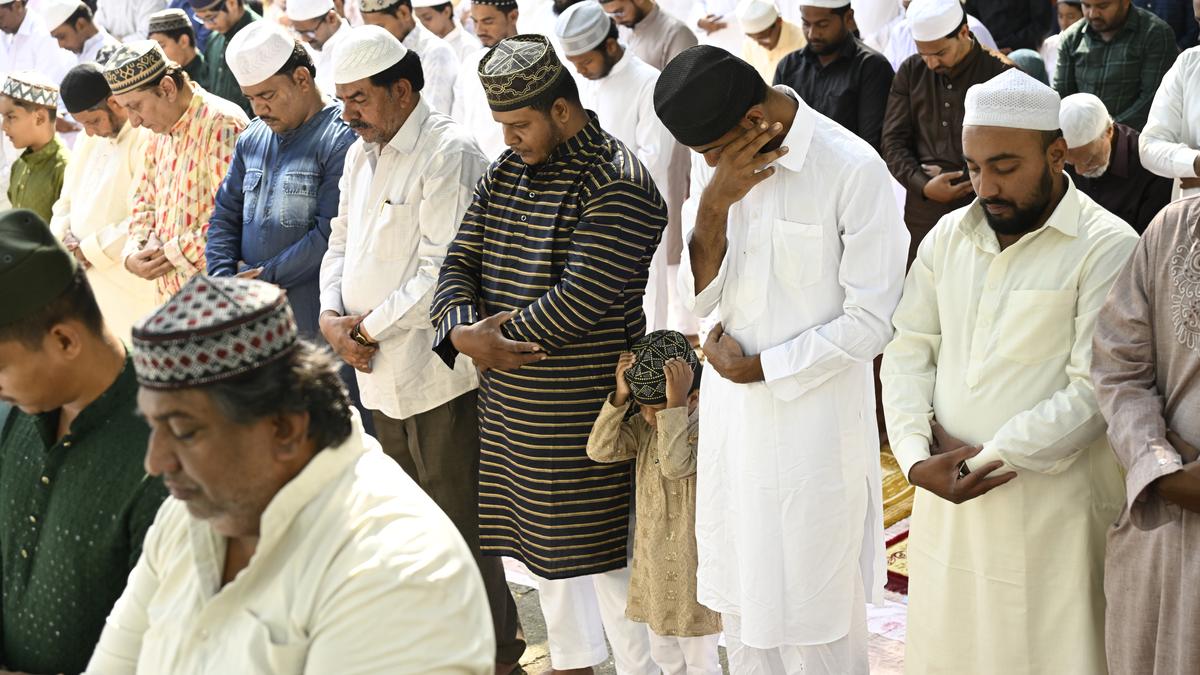Exactly how many pre-schools are there in Karnataka? The Department of School Education and Literacy (DSEL) has no accurate answer to this question, thanks to the fact that there has so far been no system in place for registering all pre-schools in the State.
A lack of separate rules and regulations or a consistent monitoring system has led to the mushrooming of private pre-schools or early childhood care education centres across Karnataka.
While pre-schools running as part of government and private schools are obtaining permission from the DSEL, most stand-alone pre-schools are operating without any approval. In addition, most of those run by corporates as franchise schools and pre-schools too are operating without a monitoring mechanism.
There have been allegations that the government or the DSEL has no control over pre-schools, and parents are being exploited by way of exorbitant fees, expensive textbooks, etc. In addition, questions have been raised about the safety and protection of children.
Now, for the first time, the Karnataka government has taken steps to register all types of pre-primary schools, including play homes, Montessori, and nurseries, with objectives including child safety and streamlining of private pre-schools.
What order says
The DSEL issued an order on May 27, 2025, stating that, as per the Karnataka Educational Institutions (Classification and Registration) Rules, 1997, pre-primary education means non-formal education below the first standard for children between the ages of three and five, whether called play homes, Montessori, nursery, etc. The department stated in the order that all “newly started” pre-schools must be registered compulsorily.

As per rules, there should be no fixed curriculum in pre-schools. Children should have a play-based method of learning, according to V.P. Niranjanaradhya, development educationist. | Photo Credit: File Photo
Trusts and school managements have been allowed to apply before starting new private unaided pre-primary schools through the newly developed online module on the Student Achievement Tracking System (SATS) portal.
Criteria adopted for registration to start a new private unaided pre-primary school include having a building with a carpet area of one square metre per student, subject to a minimum of 2,000 sq. ft, preferably on the ground floor with a playground, either owned or taken on lease for at least 30 years. In addition, the order states that a building fitness certificate and fire safety clearance certificates should be obtained from the competent authority. Physical safety (infrastructure, health, and transportation), personal and sexual safety, and social and emotional safety should be ensured.
“From this year, registration of all pre-schools has been made mandatory. This order has been sent to all district- and taluk-level officers, who have been instructed to register all types of pre-schools in their jurisdiction. Till now, there were no regulations in the department regarding the registration of pre-schools. We also developed a separate module on the SATS portal for pre-schools to register, and it is mandatory for all new pre-schools to register,” says K.V. Trilokchandra, Commissioner, Department of Public Instruction.
The Central Board of Secondary Education has made registration of pre-schools under its jurisdiction mandatory from this academic year.
No clarity on numbers
According to an estimate, there are around 45,000 pre-schools across the State, out of which about 20,000 are integrated pre-schools in government and private schools, permitted by the DSEL. However, the department does not have information about the number of stand-alone pre-schools, including those run as part of franchise chains. Though some stand-alone pre-schools are run after obtaining permission from the DSEL, the department is not monitoring them in any way, once permitted.

A file photo of a child at a Montessori in Bengaluru.
Now, although the government has made registration mandatory for new pre-schools starting from 2025-26, there is no clarity on whether these rules apply to existing schools.
There is now a demand from parents, educationists, and other stakeholders to issue comprehensive regulations or standard operating procedures (SOPs) applicable to all pre-schools across the State for the safety of children.
What are the demands
Stakeholders point out that many aspects, including fees, are arbitrary in pre-schools. Although the government has no control over fee fixation in private schools, the rules allow for the regulation of a fee increase of only 10% to 12% a year. In addition, the details of the fees charged by private schools have to be published on the notice board.
However, since none of these rules apply to pre-schools, a modest private pre-school in tier-1 cities like Bengaluru charges ₹30,000 to ₹50,000 per student a year. There are even instances of big private schools charging ₹1 lakh to ₹1.5 lakh a year for pre-school admission.
“Pre-schools have become a big business now, and they charge more than regular schools. Private pre-schools charge huge fees in the name of uniforms, textbooks, and other things. If parents question this, schools tell them to enrol their children elsewhere. That’s why the government should bring in fee regulation for private pre-schools,” said Tanuja M., mother of a pre-school child and a bank employee in Bengaluru.
Safety of children and the absence of a child-friendly atmosphere are also a concern, as many of the stand-alone pre-schools in the State are being run in residential houses and commercial complexes without any safety measures.
“There is a rule that pre-schools should be started only on the ground floor of a building for the safety of children. However, many stand-alone pre-schools are functioning on the upper floors. Despite several complaints to the Education Department in this regard, nothing has changed. If any accident occurs, who is responsible?” asks B.N. Yogananda, president of the Parents Association.

Although the government has made registration mandatory for new pre-schools starting from 2025-26, there is no clarity on whether these rules apply to existing schools. | Photo Credit: File photo
No uniform curriculum
Another issue often flagged is the absence of a uniform curriculum in pre-schools. Earlier, the State government had implemented the ‘Chili-Pili’ curriculum in the pre-schools under its jurisdiction and in those in anganwadi centres. It has now been updated as ‘Chili Pili-Plus’. However, there is no uniform or single curriculum applicable to all pre-schools in the State.
“As per rules, there should be no fixed curriculum in pre-schools. Children should have a play-based method of learning. Children are taught to write right from the start in many pre-schools. But language learning includes listening, learning, speaking, reading, and finally writing. Imposing the writing method at the pre-school level will affect the learning of children. Therefore, the State government should take steps to implement a curriculum that is applicable to all pre-schools and is conducive to the overall development of children,” says V.P. Niranjanaradhya, development educationist.
Age limit violation
Some pre-schools are also found to be enrolling children who are underage, violating the age criteria, leading to problems later when they join primary school.
As per the National Education Policy-2020, in July 2022, the DSEL made it mandatory for the completion of six years by June 1 for admission to class 1. Accordingly, the age for admission to Montessori was set at three years, for LKG at four years, and for UKG at five. However, as a temporary step, the department relaxed the six-year age cap for school enrolment for two years. According to that order, it was mandatory to follow the age rule from 2025-26. But, despite the order, most pre-schools continue to enrol children who are under the prescribed age. Buckling under pressure, the government recently postponed the implementation of the age limit rule for admission to class 1 to the next year.
SOP for pre-schools
“Child protection is a fundamental right in the United Nations Convention on the Rights of the Child (UNCRC). The UNCRC talks of children’s survival rights, developmental rights, protection rights, and participation rights. In addition, according to Article 39(e) and (f) of the Indian Constitution, it is the responsibility of the State to raise children in a healthy and meaningful way. Even if the State does not run any institutions, it should formulate guidelines or SOPs for those who run institutions. There are no regulations related to the safety of children in pre-schools and protection from exploitation and discrimination. Therefore, in the interest of the protection of children, the Karnataka government should bring a comprehensive regulation or SOP for pre-schools,” says Niranjanaradhya.

Children at a pre-school in Bengaluru. | Photo Credit: File photo
He points out that Section 11 of the Right of Children to Free and Compulsory Education Act, 2009, focuses on pre-school education for children. It mandates that the government provide free pre-school education to children above the age of three to prepare them for elementary education and offer early childhood care and education until they turn six. “The Karnataka Education Act, 1983, has allowed the government to regulate all pre-schools, including government and private ones. Therefore, the State Education Policy that the Karnataka government intends to implement should at least make appropriate rules regarding the regulation and management of pre-schools,” he says.
New regulation welcomed
Meanwhile, the Associated Managements of Schools in Karnataka (KAMS), an association of private school managements, has termed the order issued by the government on registration of pre-schools as a good start.
“Although the State government had issued an order on the registration of pre-schools in 2018, the department has not implemented it. Despite several appeals and protests, unauthorised pre-schools have continued to mushroom. Since there is no fee regulation, they are exploiting children and parents. In many places, there is not even a minimum infrastructure. Therefore, the government has made the registration of pre-primary schools mandatory from this year, which is a healthy development. From now on, all types of pre-schools in the State must be registered compulsorily. If they are not registered, they will be considered unauthorised. IDs will not be created in SATS for children in such pre-schools,” says D. Shashikumar, general secretary of the KAMS.
(Edited by Giridhar Narayan)
Published - May 30, 2025 07:15 am IST



.png)
.png)
.png)
















 1 week ago
7
1 week ago
7









 English (US) ·
English (US) ·